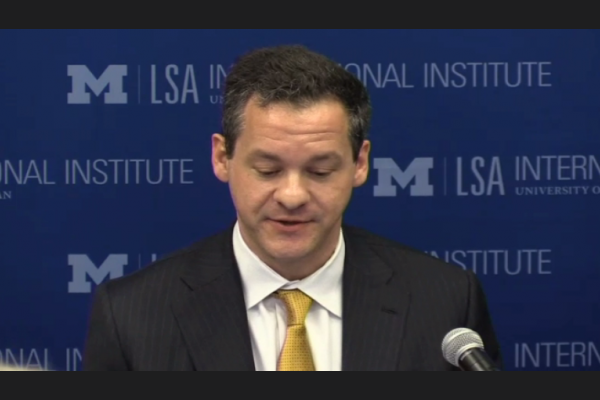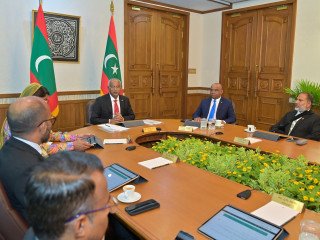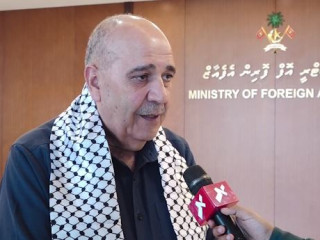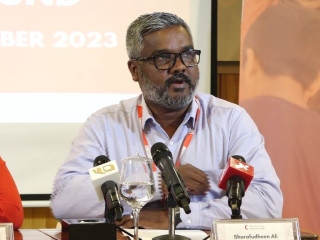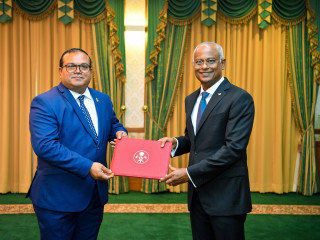Former President Nasheed’s defense lawyer, Jared Genser has said that a judgement on the former president’s case, filed at the United Nations Human Rights Committee, is expected later this year.
In September 2006, then President Maumoon Abdul Gayoom ratified the International Covenant on Civil and Political Rights (ICCPR), which is overseen by the U.N. Human Rights Committee.
Genser, highlighting this fact, said that he and his team- consisting of Nasheed’s local legal team, as well as international human rights defenders Amal Clooney and Ben Emmerson- are currently litigating Nasheed’s case at the U.N. Human Rights Committee, as the struggle for democracy “is far from over.”
The founder of Freedom Now joined his client at a panel discussion held by Donia Human Rights Center in Michigan, USA, on Monday.
“We argue that a disqualification for [Nasheed] to run for political office based on an arbitrary charge, trial and conviction is equally as arbitrary,” said Genser.
He noted that a disqualification is “interfering with his rights to political participation” which is guaranteed under ICCPR, as well as “prohibits him from leading his own political party,”
Genser noted this interferes with Nasheed’s right to freedom of association as well. He added that they expected to win the case the UN Human Rights Committee.
The international human rights lawyer also noted the various violations in Nasheed’s trial, including him being arrested without a warrant and not being allowed to present defense witnesses.
“Sometimes these kinds of torturing governments don’t even understand due process as a concept well enough to understand what they did was an abuse, and so they are brazen about what they are doing thinking there might not be anything wrong with it,” said Genser.
Genser further accused the three-judge panel that presided over Nasheed’s case were paid USD 80,000 to USD 100,000 “to convict him.”
“We learnt later that it was a relatively small amount compared to the tens of millions of dollars that have been paid to many other government officials, all the way up to the President,” he added.
Genser and team won Nasheed’s case at the U.N. Working Group on Arbitrary Detention (UNWGAD), who in October 2015 ruled that Nasheed’s sentencing was arbitrary and called for his immediate release.
However, the Maldivian government rejected the ruling, saying that it does not accept the decision of the WGAD and “will not be made to act on the basis of a non-binding opinion.”
